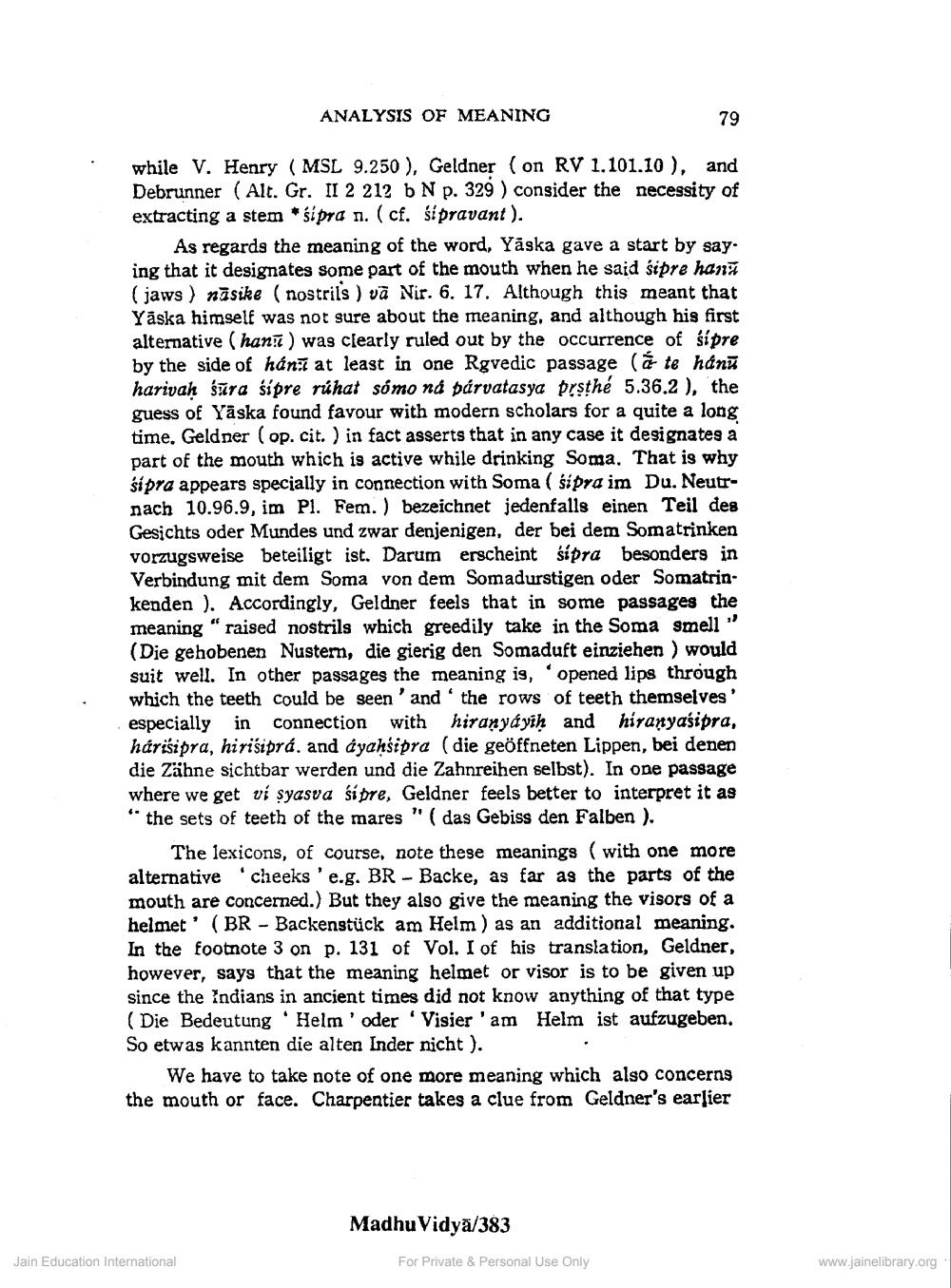________________
ANALYSIS OF MEANING
while V. Henry (MSL 9.250), Geldner (on RV 1.101.10), and Debrunner (Alt. Gr. II 2 212 b N p. 329) consider the necessity of extracting a stem sipra n. (cf. sípravant).
As regards the meaning of the word, Yāska gave a start by say. ing that it designates some part of the mouth when he said sipre han (jaws) nasike (nostrils) va Nir. 6. 17. Although this meant that Yäska himself was not sure about the meaning, and although his first alternative (hani) was clearly ruled out by the occurrence of sípre by the side of han at least in one Rgvedic passage (á te hânй harivaḥ sara sipre ráhat sómo ná párvatasya prsthé 5.36.2), the guess of Yäska found favour with modern scholars for a quite a long time, Geldner (op. cit.) in fact asserts that in any case it designates a part of the mouth which is active while drinking Soma. That is why sipra appears specially in connection with Soma (sipra im Du. Neutr nach 10.96.9, im Pl. Fem.) bezeichnet jedenfalls einen Teil des Gesichts oder Mundes und zwar denjenigen, der bei dem Somatrinken vorzugsweise beteiligt ist. Darum erscheint sípra besonders in Verbindung mit dem Soma von dem Somadurstigen oder Somatrinkenden ). Accordingly, Geldner feels that in some passages the meaning "raised nostrils which greedily take in the Soma smell (Die gehobenen Nustern, die gierig den Somaduft einziehen) would suit well. In other passages the meaning is, opened lips through which the teeth could be seen' and the rows of teeth themselves' especially in connection with hiranyáyih and hiranyaśipra, harisipra, hirisiprd, and dyaksipra (die geöffneten Lippen, bei denen die Zähne sichtbar werden und die Zahnreihen selbst). In one passage where we get vi syasva sipre, Geldner feels better to interpret it as "the sets of teeth of the mares" ( das Gebiss den Falben ).
79
The lexicons, of course, note these meanings (with one more alternative cheeks' e.g. BR - Backe, as far as the parts of the mouth are concerned.) But they also give the meaning the visors of a helmet (BR- Backenstück am Helm) as an additional meaning. In the footnote 3 on p. 131 of Vol. I of his translation, Geldner, however, says that the meaning helmet or visor is to be given up since the Indians in ancient times did not know anything of that type (Die Bedeutung Helm' oder 'Visier 'am Helm ist aufzugeben. So etwas kannten die alten Inder nicht).
Jain Education International
We have to take note of one more meaning which also concerns the mouth or face. Charpentier takes a clue from Geldner's earlier
Madhu Vidya/383
For Private & Personal Use Only
www.jainelibrary.org




